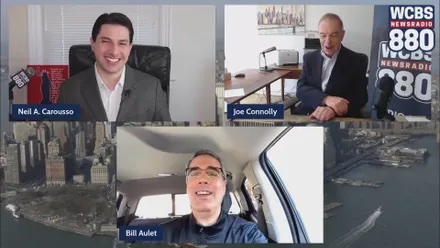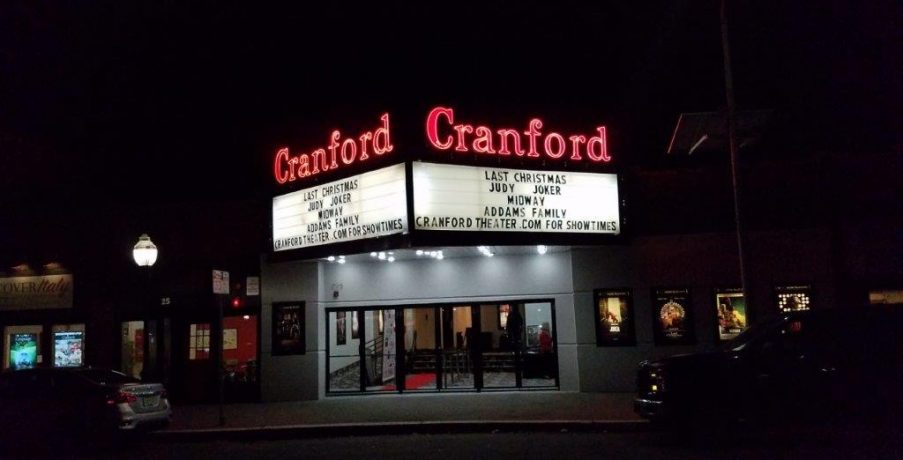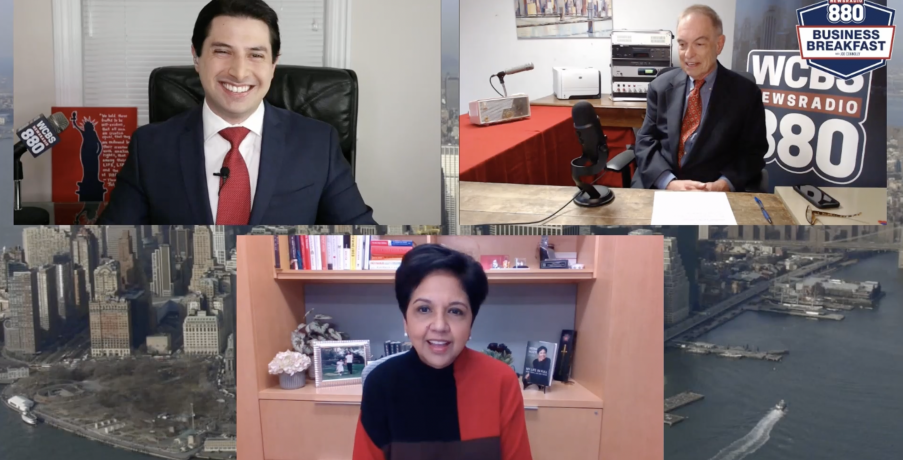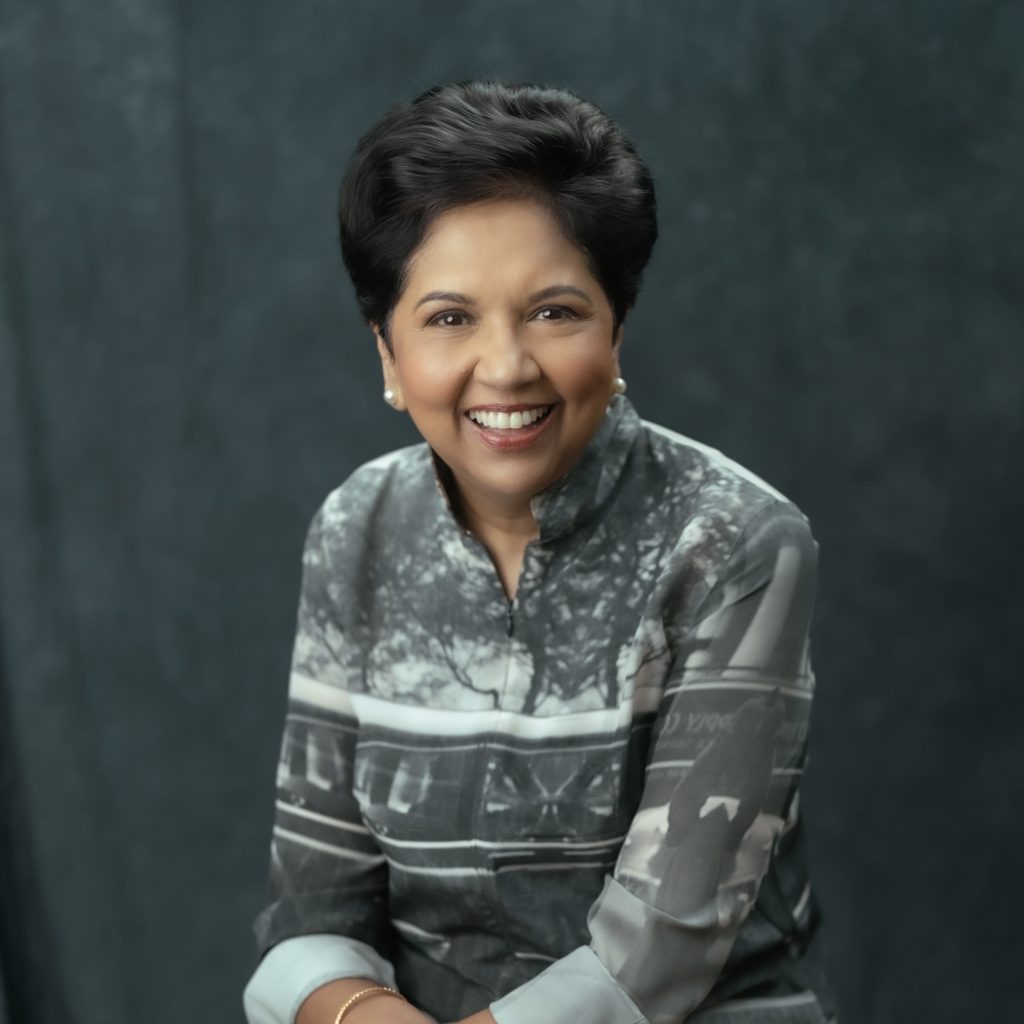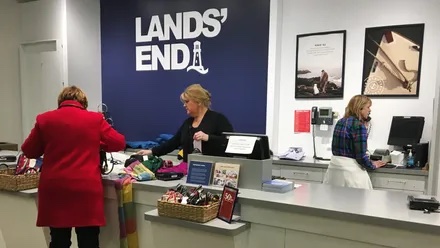
Neil A. Carousso produces NewsNation original “Kurt’s Country” – a celebration of country music and a slice of Americana with host Kurt Bardella.
-
Mentality of entrepreneurs during COVID: ‘Spirit of a pirate, execution skills of a Navy SEAL’
Posted by: Neil A. CaroussoPost Views: 765By Joe Connolly and Neil A. Carousso
NEW YORK (WCBS 880) — Business owners have been improving manufacturing processes, supply chains and other sectors impacted by COVID-19, but it hasn’t been easy.
“Those people who would optimize their supply chains, who had done just-in time-manufacturing, had financial leverage. When they got hit by COVID, they didn’t know what to do and they basically went out of business. But, it was the entrepreneurs who had the spirit of a pirate and the execution skills of a Navy SEAL who seized the new opportunities,” said Bill Aulet, managing director of the Martin Trust Center for MIT Entrepreneurship.
Aulet, who was an executive at IBM for 25 years before starting three technology companies of his own, said on the WCBS Small Business Spotlight, sponsored by Dime Community Bank, that change is a motivator for entrepreneurs who are always looking for new growth areas.
“Business people were told command, control, defeat whatever it is that you’re going to do, always control the resources you have. Yet, you know, entrepreneurship is the pursuit of opportunities with resources beyond your control,” he said.
To that end, Aulet is seeing more entrepreneurs today collaborating and sharing resources and areas of expertise within their networks. That community based way of operating has allowed companies to be leaner and focused on their strengths while fielding more referrals.
“Being able to have communities that you can get resources from to help you to realize opportunities is a fundamental third dimension of entrepreneurship,” he said.
Watch the Small Business Spotlight video with MIT Entrepreneurship Professor Bill Aulet above for ideas on streamlining operations and finding new opportunities in the post-pandemic economy.
-
Small Business Comeback Tour: The Cranford Theater
Posted by: Neil A. CaroussoPost Views: 622By Joe Connolly and Neil A. Carousso
CRANFORD, NJ (WCBS 880) — A local theater in New Jersey brought the community together during the pandemic through various programs that kept the business afloat and are now ushering in a younger generation.
The Cranford Theater has been open for nearly 100 years. Doreen Sayegh and her father renovated the community mainstay in late 2019 after taking ownership. They saw a “strong start,” but when the pandemic hit, they were forced to pivot.
“We transitioned into selling concessions to go,” said Sayegh on the WCBS Small Business Comeback Tour, sponsored by PSE&G.
Popcorn gift packs kept The Cranford Theater in business following the initial shutdown in March 2020. Then, Sayegh spotted a new opportunity out of pandemic nostalgia.
“I was hearing talk of the drive-in (movies) coming back,” she said. “We built a screen in a parking lot in Cranford.”
Drive-in movies allowed families to enjoy public entertainment safely and was the turning point in The Cranford Theater’s recovery. Sayegh said they were one of a few that offered drive-in movies in New Jersey. There are about 300 official drive-in movie theatres left in the U.S.
When initial COVID-19 restrictions were loosened in 2020 and 2021, the theater hosted scavenger hunts for kids that helped support other local businesses in the neighborhood.
“We’ve partnered with the downtown, which is amazing, and the restaurants and stores in town and we’ll do a promotion together,” said Sayegh.
This spring, indoor comedy shows, festivals and fundraisers have returned with capacity audiences. The Cranford Theater is also hosting the Garden State Film Festival for the second consecutive year.
See how The Cranford Theater made it through the pandemic on the WCBS Small Business Comeback Tour video above.
-
WATCH: Former PepsiCo CEO Indra Nooyi’s 3 secrets for post-pandemic business growth
Posted by: Neil A. CaroussoPost Views: 1,159By Joe Connolly and Neil A. Carousso
NEW YORK (WCBS 880) – Indra Nooyi, the former PepsiCo chairman and CEO who is widely admired for her forward-thinking leadership and American success story, shared her optimistic view for business growth on Thursday’s WCBS Virtual Business Breakfast.
“I see tremendous vibrancy in small and medium-sized enterprises who are all reconstituting and re-establishing themselves in a slightly different phase,” said Nooyi.
The influential former Fortune 500 leader knows a lot about reshaping a brand. After taking over as CEO of PepsiCo in 2006, Nooyi spearheaded the Westchester-based food and beverage company’s Performance with Purpose initiative to develop more health-conscious and nutritious products while limiting its environmental footprint. That was initially met with resistance from her fellow executives.
“I looked forward 10 years and said, ‘What are the big mega trends that are going to impact the consumer industry, a food and beverage industry and PepsiCo, and what do I need to do today to retool the company to remain successful?'”
Nooyi noted “change is the only constant” in business and advised employers watching the program to take on the challenges of the COVID-19 pandemic and make critical improvements to their operations, sales and staffing apparatuses.
She shared her keys to sales, marketing, and work-life balance with the live WCBS audience.
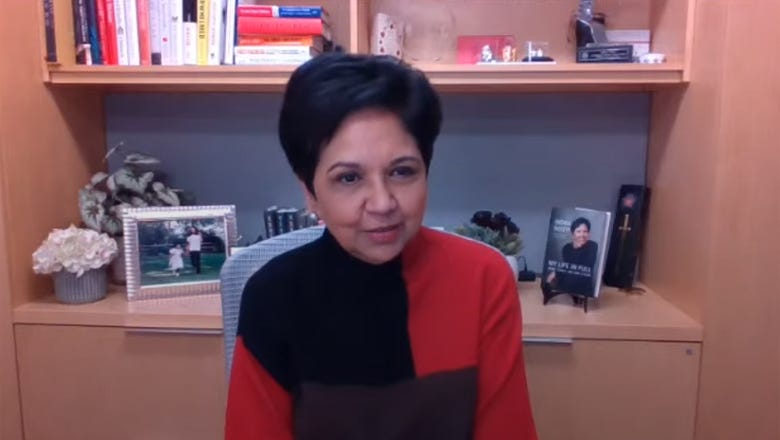
Photo credit WCBS 880 Sales & Marketing:
Nooyi said the small businesses that stand out have a clear “proposition” that makes their stores a destination.
“I look at lots of small stores on Main Street and all these towns in Connecticut. Some of them have a great proposition: beautifully curated items,” she said, adding, “Others simply sell national products. When you set a national product in a small enterprise, you can’t keep the cost competitive.”
The former PepsiCo CEO said the charm of local businesses is “personalized service.”
“It’s wonderful how they make you feel so welcome in the store.”
Nooyi noted that communicating the brand identity in a simple way will help businesses sell online, too. She said every business today needs to sell direct-to-consumer as part of their sales portfolio. But, she suggested that local chapters of the Chamber of Commerce and state governments should provide more expansive digital marketing resources and support to help small and mid-sized businesses lower their operating costs to scale.
“It sounds so easy because companies like Amazon have made it easy for us, but setting up the e-commerce backbone is quite difficult,” said Nooyi, who sits on Amazon’s board of directors. “Let’s figure out in communities and business organizations how to provide the basic technical competence so that small and medium-sized enterprises can plug and play on this backbone that’s created for them.”
The Future of Work:
There’s no doubt remote work has improved work-life balance for millions of families. Flexible schedules allow parents to spend more time with their kids and be productive employees in many cases.
But, Nooyi is concerned that it may create two classes of workers: those who go to the workplace everyday and those who work from home permanently.
“I don’t know how innovation happens if you don’t have face-to-face meetings regularly,” she said. “All the value I saw in face-to-face meetings is popping into conference rooms, talking to people in the corridor, it develops a company culture, a company soul, there’s a human interaction, ideas are exchanged, you get to know people.”
She told the WCBS Virtual Business Breakfast that her two daughters – a millennial and Gen Zer – are both eager to return to their offices.
“I’m hearing about companies who’ve hired 10,000 people last year. Nobody has met anybody in person.”
But, the working mother acknowledges balance and the ability for women to remain in the workforce while raising a family is critical for economic development.
“If we don’t have a good childcare infrastructure, we will have the great resignation,” said Nooyi. “We will have lots of women in particular leaving the workforce.”
Nearly 48 million Americans quit their jobs in 2021, an annual record. About 4.3 million people resigned in January, just shy of a monthly record set in November, according to the Bureau of Labor Statistics.
She said companies will need to raise wages, especially for essential workers, in order to limit pandemic turnover.
“It was obvious that those people who don’t have the chance to have flexible work hours and work from home have got huge caregiving responsibilities, themselves. And somehow we have ignored all of this,” said Nooyi.
Leading by Example:
Nooyi credits a few key mentors for being instrumental in her career success and personal growth. In her memoir “My Life in Full: Work, Family and Our Future,” she writes about her journey navigating a culture change when she immigrated to the U.S. from India to attend school at Yale University in New Haven, CT and her ascension up the corporate ladder.
“I am a product of mentoring, phenomenal mentoring,” she said. “They were all men. They pushed me, they supported me, they critiqued me, they gave me difficult assignments to do because they thought that’s the way I should expand my horizons. I will be totally grateful to all of those mentors.”
Nooyi revealed she now gets a letter a day from people asking her to be their mentor. But, she said it doesn’t work that way; mentors pick someone because they like him or her and see career potential.
“They see a skill, a talent, and they say, ‘If I give this person a little bit of advice and push they’re going to make it big and I’m going to be able to say, you know, I had a say in this person’s success.'”
The influential business leader added that business owners should consider what they offer young talent in the form of mentorship and it may help them retain employees.
Nooyi said health is paramount for owners and managers to successfully lead their teams.
“I always thought that if I exercise or meditate, that was a few minutes away from doing the work of the company, which is really unfortunate because if you don’t keep yourself healthy, if you don’t have a clear mind – unless you’re wired differently like I am – you cannot make good decisions,” she said.
“So, I urge everybody: allocate some part of the time of the day to you, to your self-improvement, to your health, time for you and just distress. Because the world today is very complex. Too many things are changing. We have to be lifelong students. Technology is upending everything we do. You come to work a week later and everything has changed in the world around us. And so, I’d say people have to allocate time in a very disciplined way for themselves.”
See Indra Nooyi’s inspirational message for businesses and employees and get growth ideas on the WCBS Virtual Business Breakfast, which you can watch now on-demand on the YouTube player above.
About Indra Nooyi:
Indra Nooyi is the former Chairman and CEO of PepsiCo (2006-2019); a Fortune 50 company with operations in more than 180 countries.
In this role, Mrs. Nooyi was the chief architect of Performance with Purpose, PepsiCo’s pledge to do what’s right for the business by being responsive to the needs of the world around us. As part of Performance with Purpose, PepsiCo was focused on delivering sustained growth by making more nutritious products, limiting its environmental footprint and protecting the planet, and empowering its associates and people in the communities it serves. During her tenure, PepsiCo grew net revenue more than 80%, and PepsiCo’s total shareholder return was 162%. Nooyi directed the company’s global strategy for more than a decade and led its transformation, including the divestiture of its restaurants into the successful YUM! Brands, Inc., the acquisition of Tropicana and the merger with Quaker Oats that brought the vital Quaker and Gatorade businesses to PepsiCo, the merger with PepsiCo’s anchor bottlers, and the acquisition of the Russian company Wimm-Bill-Dann, the largest international acquisition in PepsiCo’s history.
Prior to becoming CEO, Mrs. Nooyi served as PepsiCo’s President and Chief Financial Officer beginning in 2001, when she was also named to the company’s Board of Directors. She was responsible for corporate functions, including finance, strategy, business process optimization, corporate platforms and innovation, procurement, investor relations and information technology. From February 2000 to April 2001, Mrs. Nooyi was Senior Vice President and Chief Financial Officer of PepsiCo. Mrs. Nooyi also served as PepsiCo’s Senior Vice President, Corporate Strategy and Development from 1996 until 2000, and as PepsiCo’s Senior Vice President, Strategic Planning from 1994 until 1996. Before joining PepsiCo in 1994, Mrs. Nooyi spent four years as Senior Vice President of Strategy, Planning and Strategic Marketing for Asea Brown Boveri, a Zurich-based industrials company.
She was part of the top management team responsible for the company’s U.S. business as well as its worldwide industrial businesses, representing about $10 billion of ABB’s $30 billion in global sales. Between 1986 and 1990, Mrs. Nooyi worked for Motorola, where she was Vice President and Director of Corporate Strategy and Planning, having joined the company as the business development executive responsible for its automotive and industrial electronic group. Prior to Motorola, she spent six years directing international corporate strategy projects at The Boston Consulting Group. Her clients ranged from textiles and consumer goods companies to retailers and specialty chemicals producers. Mrs. Nooyi began her career in India, where she held product manager positions at Johnson & Johnson and Mettur Beardsell, Ltd., a textile firm.
Mrs. Nooyi served as a member of the PepsiCo Board of Directors from 2001 and February 2019. Mrs. Nooyi is now a member of the board of Amazon, where she chairs the audit committee. She sits on the supervisory board of Philips, where she is also a member of the nominating and corporate governance committee. She is a member of the International Advisory Council of Temasek; an independent director of the International Cricket Council; and a member of the American Academy of Arts & Sciences. She is on the Dean’s Advisory Council at MIT’s School of Engineering, and a member of the MIT Corporation. She also serves on the boards of the Memorial Sloan Kettering Cancer Center and the Partnership for Public Service. Additionally, Mrs. Nooyi is the Class of 1951 Chair for the Study of Leadership at West Point where she helps enhance the ability of both the Department of Behavioral Sciences and Leadership and the U.S. Military Academy to fulfill the mission of developing leaders of character. She also serves as an advisor to several early-stage companies.
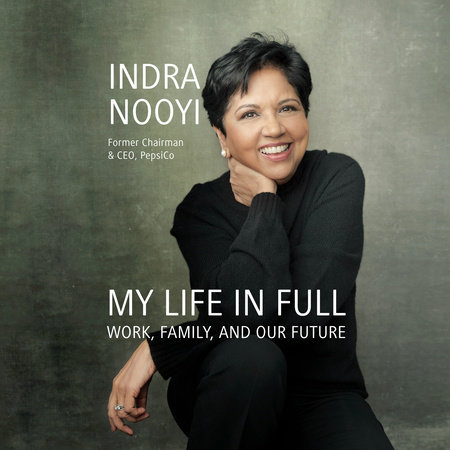
Indra K. Nooyi is the author of the book “My Life in Full: Work, Family and Our Future” in which she offers a blueprint for advancing society in a post-pandemic world. Photo credit Penguin Random House She is the author of the book, My Life in Full: Work, Family and Our Future, her much-anticipated memoir that offers insight and a call-to-action from one of the world’s most-admired business leaders on how our society can blend work and family — and advance women — in the 21st century. Mrs. Nooyi has received fifteen honorary degrees. In 2007, the Government of India awarded her the Padma Bhushan, the country’s 3rd highest civilian honor. That same year, she was named an “Outstanding American by Choice” by the US State Department. In 2019, her portrait was inducted into the Smithsonian National Portrait Gallery. In 2021, Indra became an elected member of the American Philosophical Society and joined the Board of Trustees of the National Gallery of Art. She was also inducted into the Asian Hall of Fame and National Women’s Hall of Fame.
She holds a B.S. from Madras Christian College, an M.B.A. from the Indian Institute of Management in Calcutta, and a Master of Public and Private Management from Yale University.
Mrs. Nooyi is married to Raj Nooyi and has two daughters, Preetha and Tara.
-
The secret staying power of Lands’ End: A Decision Makers exclusive
Posted by: Neil A. CaroussoPost Views: 673Executive Produced by Neil A. Carousso
“Don’t get stuck in your ways,” might seem like unexpected advice coming from Lands’ End CEO Jerome Griffith.
Why? Well, the company is heading towards its 60th anniversary and, as Bloomberg’s Carol Massar noted during a recent Decision Makers interview with Griffith she hosted alongside WBBM Newsradio’s Cisco Cotto, Lands’ End has been called “stodgy” in the past.
Decision Makers interviews offer a peek inside some of the most well-known consumer brands in the country and the executives, such as Griffith, who run them.
Massar noted that the “stodgy” comment came before Griffith, formerly of Esprit, Tommy Hilfiger and Tumi, took the helm of Lands’ End in 2017.
While the company – which has evolved from a yacht supply store in Chicago to an apparel and home goods company in the past half century – is still known for dependable, comfortable apparel under his leadership, Griffith explained how it has to change things up in order to keep appealing to customers.“You have to stay flexible,” he said. For Lands’ End, this focus on flexibility extends from its manufacturing decisions and its corporate culture to its product distribution and marketing.
Griffith explained that the company has worked for years to make sure its products aren’t all made in the same place.
“We didn’t want to be tied into any one country,” he said, adding that no one country represents more than 20% of manufacturing for the Lands’ End. This approach has helped the company avoid some of the potential impact of COVID-19 pandemic-related shutdowns, including a recent two-month shutdown in Vietnam.
Since the pandemic began two years ago, Griffith said Lands’ End has also embraced the benefits of remote work. Designers have been able to work using 3D technology. Customers have been consistently satisfied with the fit of clothes made by the company according to the TruFit app and Lands’ End has managed to keep up low return rates for its products, said the CEO.
Remote work has helped current employees become more efficient and it has also helped the Dodgeville, Wisc., company expand its talent base, said Griffith. Recently, workers have started coming back to the office for “collaboration sessions,” but the CEO doesn’t think working there will ever be the same.
“What you’re really seeing is a wholesale change of how people work,” he said.
As the company becomes more flexible about remote work, it has also been carving out a new distribution strategy. In addition to its own stores and website, Lands’ End offers its products online through Amazon, online and in-store through Kohl’s and is working with QVC for TV shopping.
Griffith said that offering Lands’ End at brick-and-mortar Kohl’s stores has only increased online sales for the company. Products are expected to be available at more than 500 Kohl’s locations by the end of the year.
“You’re relevant because you’re there,” he said.
Another collaboration aimed at keeping the brand relevant was with Draper James, Reese Witherspoon’s clothing line.
“It makes it cool, and the cool factor is something you can’t…really put your finger on,” Griffith said.
However, the most important part of staying relevant is understanding your customer, he said. And Griffith really knows the Lands’ End customer.
She’s a woman in her 40s or 50s living in suburbia. She’s affluent but frugal, she works and she is tech savvy, doing most of her shopping from her smartphone. Her children probably still live at home and she picks out her husband’s clothes for him – at Lands’ End.
Griffith said most of the men’s apparel produced by the company is actually purchased by women. School uniforms are another big seller.
The typical Lands’ End customer is also loyal and shops with the company for an average of 17 years, he said.
In recent years, the company has also worked to include more diversity in its marketing. Just before the pandemic, in 2019, Lands’ End launched “Let’s Get Comfy,” a campaign based on its customers’ biggest priority: comfort.
It proved to be a prophetic campaign when the pandemic forced people at home and reduced a need for more formal office attire.“Better to be lucky than smart,” said Griffith of the campaign.
Going forward, he said the company still faces challenges such as supply chain issues and inflation. Even so, he thinks the future looks bright for Lands’ End.
“If you look at 2021, it was really a great year for the company. Overall, we had a good increase in revenue to the point where it’s our best year since 2011,” he said. “It’s our best earning year since 2014, when we were spun off from Sears as a public company. So, we feel really good about where the year ended up.”
Griffith said the company is looking to hire more employees, to expand its distribution and to grow its uniform business. He also said they are always keeping an eye on customer data as more Gen X customers join Baby Boomers as loyal Lands’ End shoppers.
Towels and sheets made by Lands’ End might even be the key to reaching out to millennials, he told Massar and Cotto. His children, at least, have been big fans and are spreading the word to their friends.
At the end of the day, Griffith said that keeping both Lands’ End customers and team members happy is the key to success, especially through difficult times such as a pandemic.
“I think the most important thing we should really be doing is keeping our people motivated,” he said.
Decision Makers is a joint exclusive production from Bloomberg and Audacy and executive produced by Neil A. Carousso.
-
After more than 50 years in Queens, COVID could force master stylist into retirement
Posted by: Neil A. CaroussoPost Views: 552By Joe Connolly and Neil A. Carousso
NEW YORK (WCBS 880) — COVID-19 has had a devastating impact on salons and barbershops. It’s an indication that other parts of the economy are struggling to fully recover from the pandemic.
“The business is down by 50 percent,” said long-time Queens master stylist Michael Alick on the WCBS Small Business Spotlight, sponsored by Dime Community Bank.
Alick learned the craft from his father and began working as a master stylist in Manhattan in the 1970s. About 10 years later, he opened his own salon on Bell Boulevard in Bayside where he’s worked ever since.
“I’m going to be fully retired after I worked 50 years in the industry,” he lamented. “So, I’ve seen the good days and I’ve seen bad days, but COVID is the worst.”
Alick told WCBS 880 that people are not getting haircuts and coloring their hair professionally like they used to, because they’re working remotely and dressing more casually even when they are in the office.
“Nobody’s spending money, if they make the money, like they used to, such as like luxury, going out, go to the hairdresser, look good, dress up,” he said.
The master stylist recently took up a chair twice a week at a salon in Greenwich, CT where he sees more young professionals than Bayside.

Michael Alick recently took up a chair twice a week at a salon in Greenwich, CT. Photo credit Facebook/Michael’s Place Salon But, he keeps a chair at an Asian-owned salon in Bayside out of loyalty to the clients that have stayed with him through the pandemic.
“I have loyal clients from 10 to 30 years. They were loyal to me, so I work in Bayside two days just to take care of them,” said Alick.
He credits his longevity in the industry to personal relationships.
See more on this story on the WCBS Small Business Spotlight video above.


